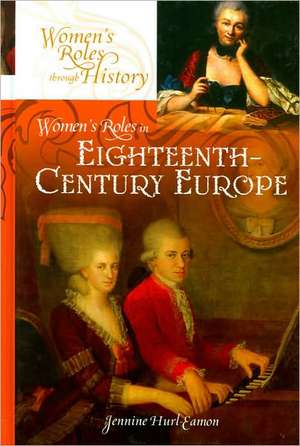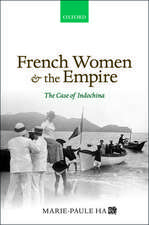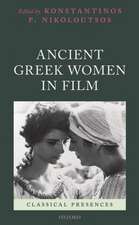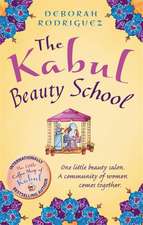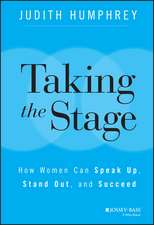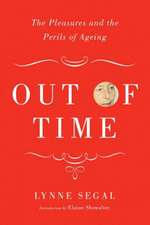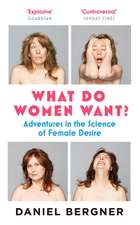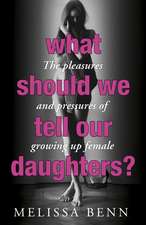Women's Roles in Eighteenth-Century Europe: Women's Roles through History
Autor Jennine Hurl-Eamonen Limba Engleză Hardback – 8 apr 2010 – vârsta până la 17 ani
Preț: 259.43 lei
Preț vechi: 450.90 lei
-42% Nou
Puncte Express: 389
Preț estimativ în valută:
49.65€ • 51.54$ • 41.40£
49.65€ • 51.54$ • 41.40£
Carte tipărită la comandă
Livrare economică 24 martie-07 aprilie
Preluare comenzi: 021 569.72.76
Specificații
ISBN-13: 9780313376962
ISBN-10: 0313376964
Pagini: 208
Ilustrații: 18 bw illus
Dimensiuni: 156 x 235 x 20 mm
Greutate: 0.45 kg
Editura: Bloomsbury Publishing
Colecția Greenwood
Seria Women's Roles through History
Locul publicării:New York, United States
ISBN-10: 0313376964
Pagini: 208
Ilustrații: 18 bw illus
Dimensiuni: 156 x 235 x 20 mm
Greutate: 0.45 kg
Editura: Bloomsbury Publishing
Colecția Greenwood
Seria Women's Roles through History
Locul publicării:New York, United States
Caracteristici
A selected bibliography
Notă biografică
Jennine Hurl-Eamon, PhD, is associate professor of history at Trent University, Peterborough, Canada.
Recenzii
While the 18th century was a time of great social and political upheavals in Europe, the lives of most women-poor women-were little affected by these changes. Nonetheless, suggests Hurl-Eamon (History, Trent University), the century saw the begins of important debates over the status of women, and some middle-class and upper class women wereable to move outside of traditional women's roles. In this book, the author looks at women across Europe and across classes, examining their lives in terms of their roles in family, work, politics, law, religion, arts and sciences, and war.
